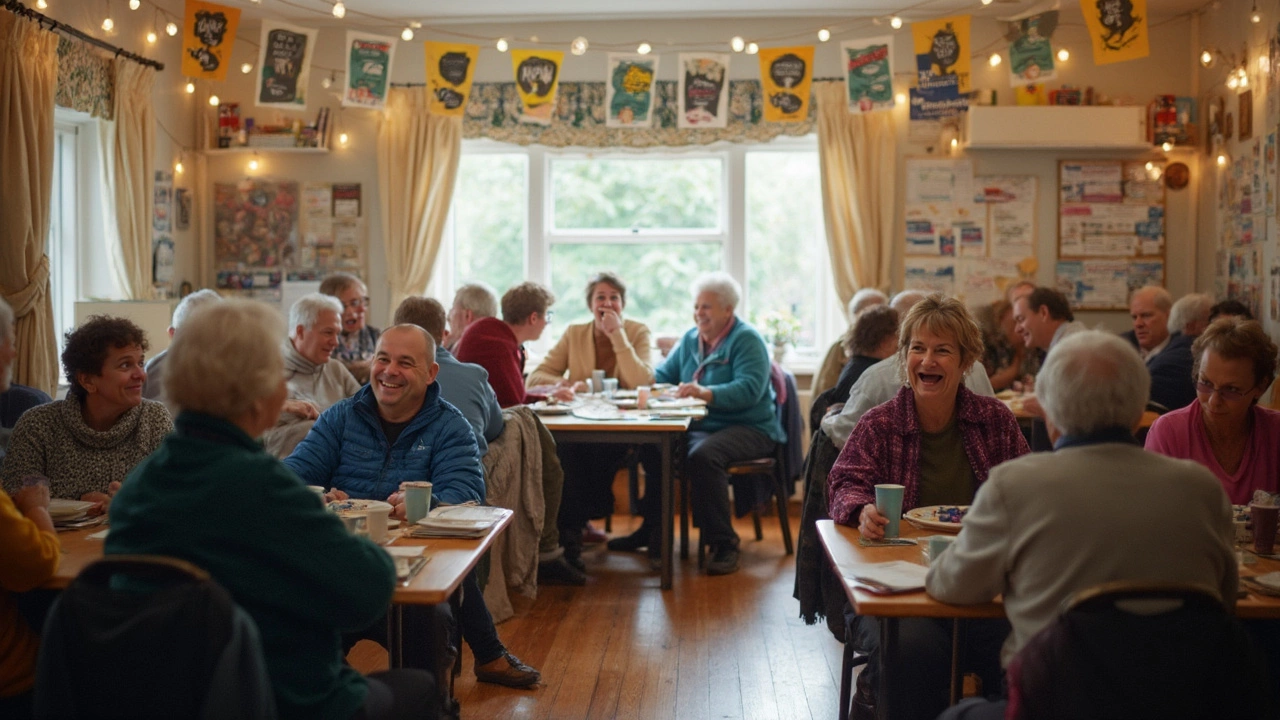Community Groups: What They Are and How to Get Involved
Ever wonder why some people always seem to have something fun to do after work? Chances are they belong to a community group. These are small clubs or organisations that bring people together around a shared interest – anything from gardening to book reading, from volunteering to crafts. The best part is they’re local, low‑cost, and open to anyone who wants to take part.
Here at Minehead & District U3A we see dozens of groups meeting every week – seniors learning new languages, young families swapping recipes, volunteers cleaning up the beach. All of them follow the same basic idea: people get together, share skills, and make the neighborhood more lively. If you’re looking for a way to meet new friends, learn something new, or simply get out of the house, a community group could be the answer.
Why Join a Community Group?
First off, you get a built‑in social circle. When you attend a regular meeting, you start to recognize faces, share jokes, and build trust without the awkward small‑talk of a one‑off event. Second, you learn faster. A cooking club, for example, lets you try recipes with guidance from people who already know the tricks. Third, you give back. Many groups focus on local projects – litter picks, charity fundraisers, tutoring – so your time directly helps the neighbourhood you live in.
Another big benefit is wellbeing. Studies show that regular social contact reduces stress and improves mental health. It’s not just about fun; it’s about feeling connected. And because most groups meet in public spaces like community centres, libraries or parks, you also get a change of scenery, which can boost creativity.
How to Start Your Own Group
If you can’t find a group that matches your passion, why not create one? It’s easier than you think. Start with a clear purpose – “weekly walking club for seniors” or “monthly art swaps for beginners”. Write a short description and pick a simple name. Then choose a regular time and place: a local hall, a café back room, or even a park bench.
Next, spread the word. Put a flyer on the community notice board, share a post on the Minehead U3A website, or tell neighbours at the grocery store. A short, friendly invitation works best: “We’re meeting every Thursday at 2 pm in the library to chat about gardening. All skill levels welcome.”
When the first meeting happens, keep it informal. Ask everyone to introduce themselves and share what they hope to get out of the group. Set a simple agenda – maybe a quick activity followed by open discussion. After the meeting, send a quick thank‑you email or message and confirm the next date.
Don’t forget to keep things fresh. Rotate activities, invite guest speakers, or plan a small outing once a month. Small costs can be covered by a modest contribution or a local sponsor – a shop might donate tea, for example.
Looking for inspiration? Browse the recent posts on our site. You’ll find articles on starting a kids club, organising fundraising events, and even how volunteers can avoid burnout. Each piece offers a step‑by‑step guide you can adapt to your own community group.
Bottom line: community groups are the glue that holds neighbourhoods together. Whether you join an existing club or launch a brand‑new one, you’ll meet people, learn skills, and make Minehead a better place to live. Ready to get started? Check out the list of upcoming meetings below and pick the one that sounds most fun. Your new circle is just a few clicks away.

Support Group Alternatives: What Else Are They Called?
Ever wondered what else a support group might be called? This article breaks down the different names you might hear and what each really means. If you’re searching for a local support network, knowing these terms can help you spot hidden resources in your community. We’ll also share tips on what to look for and fun facts about how support groups work. This guide makes navigating your options way easier.